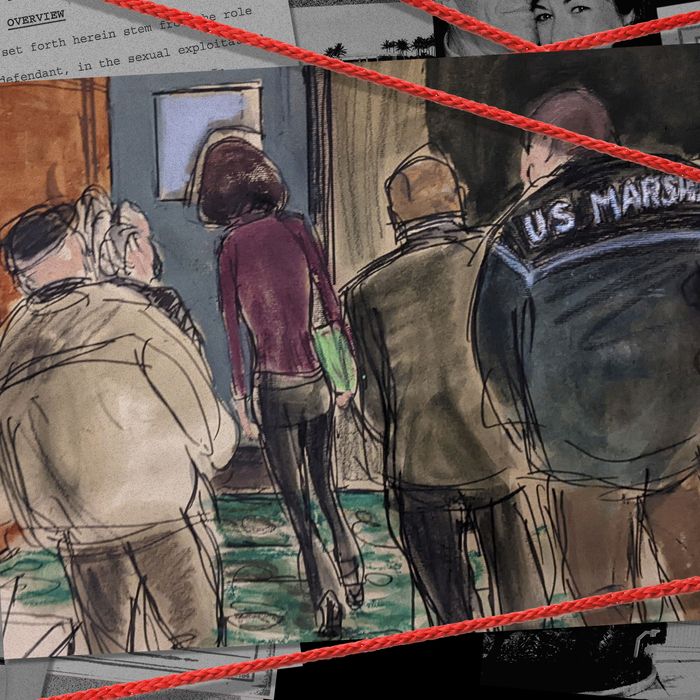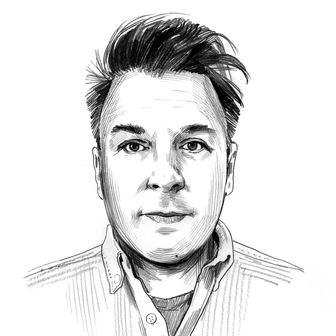
A reactionless Ghislaine Maxwell was taken from court yesterday after the jury convicted her of five of the six charges she faced. The big one, sex trafficking, could by itself put her away for the rest of her life.
A full not-guilty slate would have been shattering. What if four women had presented coherent, believable, similar, interlocking stories about abuse that was, at very best, facilitated by Ghislaine Maxwell — and a jury hadn’t agreed she was at fault? Awful.
So, whatever your opinions on crimes and their punishments (I’m against both), it’s nice to have something come to a definitive end this year. But did it really?
New York City remains distinctly unrocked; a key question still hasn’t been resolved. People have always asked both if Maxwell is guilty and why she would have done what she did. Maxwell’s life in extremely sordid crime is so inexplicable that this second question took on almost equal footing with the first.
But do we need to know why? “Unlike the marriage plot, the trauma plot does not direct our curiosity toward the future (Will they or won’t they?) but back into the past (What happened to her?),” wrote Parul Sehgal in the New Yorker the other day. We’re all trying to figure out how Maxwell got here. But I don’t care what happened to her.
She’s not a character. No author is going to make sense of her at the end of this story, filling in the missing piece of her personality that made her (pick your fave) a needy captive; a father-figure-pleasing, money-hungry sycophant; a cruel and overly sexualized victimizer. After thinking about her too much for too long, here’s where I come down: I think she’s fucking awful, and I think she doesn’t know it. What you do matters, not why you do it.
For people who desire a neater ending to the Jeffrey Epstein story, I hope you live long enough to find it. For now, here is what happens next in matters pertaining to Maxwell and Epstein.
Appeal and sentencing.
An appeal will be filed as soon as possible (rarely successful, in aggregate, but there’s nothing typical about this case); a sentencing date will be set soon.
Giuffre v. Prince Andrew and Giuffre v. Dershowitz.
A lawsuit filed in August 2021 claims that Virginia Roberts Giuffre, “in addition to being abused by Epstein himself,” “was also forced to have sex with Defendant, Prince Andrew, the Duke of York, at Epstein and Maxwell’s direction.” (My colleague Angelina Chapin talked to Giuffre this week and during the trial; Prince Andrew denies the charges.)
Prince Andrew’s lawyers now say that since Giuffre lives in Australia, she does not have the right to sue in U.S. federal court. They also say there is an agreement between Giuffre and Epstein that forbids her from suing him. On (or about!) January 3, 2022, that settlement agreement will be unleashed into the wild. Both Alan Dershowitz and Prince Andrew — in a very active and ongoing case, Giuffre has been suing Dershowitz since 2019 for defamation, among other things — are relying on this document, saying it shields them from Giuffre’s lawsuits.
There’s a lot of extra chaos in here in part because Prince Andrew hired the barky and showboating Hollywood firm of Lavely & Singer. His lawyer Andrew Brettler also represents or represented famous people like Armie Hammer, Bryan Singer, Chris Noth, and Danny Masterson.
Maxwell perjury case.
Lest we forget, there are still outstanding government charges against Maxwell; they say she lied in a 2016 deposition. She was asked: “Did Jeffrey Epstein have a scheme to recruit underage girls for sexual massages? If you know.” And she answered: “I don’t know what you’re talking about.” She also said that she had never given anyone a massage. The jury that just convicted her would appear to have quite clearly expressed its opinion that she was lying.
The government could withdraw this case in the interest of saving time and energy. But it might believe that pressing a case on perjury is an important deterrent to others, or it might simply not want Maxwell to go unconvicted. And given this week’s events, it might not be a time-consuming or difficult prosecution.
What about surprises?
Elie Honig, a former prosecutor who now does white-collar criminal defense and talking-head work, put forward the idea that Maxwell could be approached to cooperate in other prosecutions before she’s sentenced. He rates this possibility as “rare.” Cooperation would also be out of character for her.
Here’s your bonus conspiracy theory from Twitter: She’ll sit tight and wait for Donald Trump, exceedingly frequent Epstein-jet flier, to be reelected, at which point he’ll pardon her. I’d be like “Woo, you need help,” except what seems outlandish anymore? Trump getting a second term? Sure, why not. And Trump has previously used his pardon power without any concern for ethics. He pardoned his son-in-law’s father.
We’ll see you next time.
You’ll be updated if something revelatory happens in this case, whether that be next week or next year. But this is likely the end of our journey together. Thank you for reading and subscribing! We enjoyed this experiment. Most likely you’ll hear from us again when we invite you along to the next edition of Court Appearances. Which trial will that cover? If only we weren’t so rich in excellent candidates. Meanwhile, may I recommend our daily newsletter called One Great Story? See you there.
More From court appearances
- Trump Finally Had a Good Day in Court
- Everything to Know About Jennifer Crumbley’s Manslaughter Conviction
- Trump’s Reckoning Begins






























